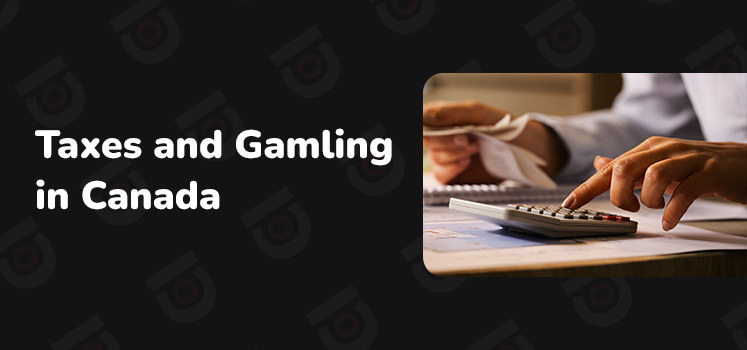 Taxes and Gambling in Canada
Taxes and Gambling in CanadaEven in a place like Canada, where gambling is a pastime for many, the intricacies of tax responsibilities on big wins aren't widely known. It's understandable—taxes are often the furthest thing from your mind when you're all in.
But, what happens then? How does taxation work for gambling winnings in Canada? Let's explore this.
Are Winnings from Gambling Taxed in Canada?
In Canada, the tax treatment of gambling winnings doesn't follow a straightforward rule. It often depends on specific circumstances.
The crux of the matter is that gambling proceeds must be declared as business income to incur taxes. Otherwise, your winnings are yours to keep.
To clarify a common misunderstanding, your winnings themselves don't determine taxability in Canada. The focus of the Canada Revenue Agency (CRA) is whether gambling is your primary income.
Distinguishing Between Casual and Professional Gambling Taxes
Whether gambling income is taxed hinges on how you engage with the activity. Determining if you gamble professionally is complex due to the lack of explicit guidelines.
For the seasoned gambler, tax regulations can become somewhat outdated. If your livelihood directly relies on gambling operations, it's classified as business income, like any enterprise, and thus, taxable.
Simply put, if your gambling activities resemble a business operation, the CRA views them as profit-driven ventures. Like any career poker or blackjack player, you are subject to paying taxes on game earnings.
1) You're a frequent competitor in gambling events.
2) You meticulously plan and perhaps travel for your gambling endeavors.
3) The majority of your financial resources come from gambling activities.
4) You possess sufficient skills that potentially reduce the reliance on luck.
5) You invest in training or attend workshops to enhance your gaming prowess.
6) You've maintained a consistent income stream over time.
But there's room for debate. Some argue it's always about the financial gain, as most gamble to win. Surely, not every gambler can be equated to a businessperson.
Indeed, but there's a nuanced argument here. Consulting tax professionals can provide clarity on whether your activity leans toward the professional or amateur spectrum.
Nonetheless, if your gambling is occasional and strictly recreational, your earnings remain entirely yours without tax obligations.
Taxing Gambling, Online and Offline
How do online gambling taxes compare?
Essentially, there isn't much legal difference between online and land-based gambling under the Income Tax Act. The same tax principles apply: if you gamble professionally, declare it as income; if not, no need to.
Remember, even regular players should focus on whether gambling is a primary income source to determine tax liability.
Last Updated: January 9, 2024

